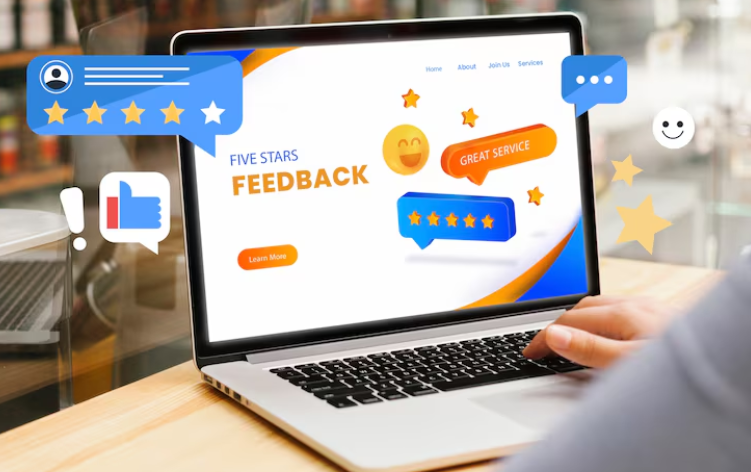Brand misuse rarely announces itself politely. It shows up as a “support” account replying before your real team can, a copycat domain that looks legitimate on mobile, or a marketplace listing that borrows your photos and name to convert buyers who think they’re purchasing from an official source. The scary part is how normal it can look at first glance. Customers are busy, platforms are noisy, and scammers are professional enough to mimic tone, logos, and workflows. If your brand is growing, you don’t need a dramatic crisis to suffer damage—you just need a few high-intent moments where customers meet the wrong digital version of you. That’s why brand misuse monitoring is no longer optional; it’s the foundation for online reputation safety.
This guide breaks brand misuse monitoring into a practical system you can run consistently: what to watch, how to detect threats early, how to triage without burning out your team, and how to turn monitoring into takedowns and trust recovery. You’ll learn how to track impersonation, phishing pathways, counterfeit exposure, and narrative attacks in a way that supports reputation goals—not just “security alerts.” You’ll also see how AiPlex ORM positions Brand Rights Enforcement as an always-on workflow that monitors 200+ digital ecosystems and supports takedown actions with reporting visibility, which is useful if you need scale, speed, and centralized accountability.
Brand Misuse Monitoring: Definitions and Scope
Brand misuse monitoring is the continuous practice of detecting and validating unauthorized use of your brand name, logo, trademark, identity, or digital assets across the places customers search, buy, and ask for help. It goes beyond standard “mention tracking” because it focuses on misuse that creates confusion, harm, or reputational drift—fake accounts, copycat domains, phishing pages, counterfeit listings, stolen creatives, and coordinated manipulation. AiPlex defines Brand Rights Enforcement as detecting and removing unauthorized use of brand name, logo, trademark, or identity, and it highlights monitoring across 200+ platforms to catch fake accounts, copycat domains, counterfeit listings, and impersonation attempts.
The most important mindset shift is this: monitoring is only valuable when it leads to action. If your team is “aware” but not removing, responding, or preventing, you’re just collecting anxiety. A strong program connects detection to evidence collection, takedown workflows, customer safety messaging, and reputation repair. It also recognizes that threats move fast. Recent security reporting shows phishing toolkits and “phishing-as-a-service” continue to scale, which increases the likelihood that brands will be impersonated in payment, support, and login journeys. Monitoring must therefore be always-on for high-risk surfaces, not a monthly search habit.
Impersonation and Fake Accounts: The Fastest Trust Hijack
Impersonation is the quickest way to convert your trust into someone else’s payout. Fake accounts can look official enough to answer comments, DM customers, and publish “refund” or “giveaway” posts that drive people to payment links or credential traps. This is where brand misuse monitoring earns its keep, because the goal is to reduce the time window between account creation and takedown. AiPlex’s FAQs explicitly describe detecting, reporting, and removing fake profiles and impersonation pages, including abuse that extends into WhatsApp groups and Telegram channels, which reflects how impersonation often spreads through social and messaging layers together.
Effective monitoring for fake accounts is not only “brand name exact match.” You need variant detection: brand + support/help/verification, misspellings, region modifiers, and lookalike logos. You also need intent signals—language that mentions OTPs, urgent refunds, payment confirmations, or “account verification”—because those phrases often indicate scams rather than fan pages. Independent guidance on modern brand abuse protection emphasizes proactive protection and rapid response as core steps because anonymous actors can cause reputational harm quickly. When you treat impersonation as a repeatable incident type with clear triggers and SLAs, you stop reacting emotionally and start removing efficiently.
Copycat Domains and Phishing Pathways: Where Customers Get Hurt
Copycat domains are dangerous because they capture customers at high intent: login, checkout, support, or “track my order.” On mobile screens, slight spelling differences and subdomain tricks are easy to miss, and scammers know it. Modern brand misuse monitoring should therefore include domain lookalike detection and ongoing scanning for brand terms that appear alongside “support,” “refund,” “secure,” and “verify.” AiPlex highlights removing copycat domains and phishing links as part of Brand Rights Enforcement, which is a useful framing because domain abuse is not only a security problem—it’s a reputation event when customers blame you for the scam.
The urgency is increasing because phishing has become more industrialized. Recent reporting indicates high-volume phishing campaigns increasingly rely on packaged toolkits that make it easier for less-skilled actors to launch convincing attacks at scale, often by impersonating trusted brands. That means your monitoring cannot assume “only a few sophisticated scammers” will target you; the barrier to impersonation keeps dropping. A resilient program watches for the full chain: the lookalike domain, the social account promoting it, the ads that push it, and the posts where victims share it. If you only remove one link in the chain, the abuse route survives.
Counterfeit Listings and Unauthorized Sellers: Reputation Damage at Purchase Time
Marketplaces can turn brand misuse into instant revenue and reputational loss because customers often associate the product page with the brand, not the seller. When counterfeits appear, your reviews get contaminated by bad experiences you didn’t create, and your pricing power erodes as shoppers anchor on suspiciously low offers. This is why brand misuse monitoring must include marketplace surfaces, not only social and web. AiPlex states it monitors e-commerce portals and marketplaces as part of its 200+ platform coverage for brand misuse, including counterfeit listings, which aligns with the reality that modern abuse is multi-channel and conversion-driven.
Counterfeit monitoring is also supported by the broader risk landscape. OECD/EUIPO reporting on counterfeit trade indicates that counterfeit and pirated goods accounted for up to 2.3% of global trade and up to 4.7% of EU imports based on 2021 seizure data, underscoring that counterfeiting is not a niche edge case. In practical terms, your monitoring should watch your top SKUs, your hero product images, and listing patterns that repeat across sellers. The goal is to catch counterfeits early, document them well, and remove them fast enough that they don’t become a “permanent shadow catalog” attached to your brand name.
Content Theft: Logos, Creatives, Videos, and Brand Assets
Not all misuse is a fake account or a counterfeit product. Sometimes it’s your content—your logo, product photos, campaign creatives, explainer videos—reposted to create credibility for scams, fake stores, or “discount outlet” pages. Content theft matters because it’s the credibility layer. Customers might ignore a suspicious username, but they trust the familiar hero image they’ve seen in your ads. Brand misuse monitoring should therefore include asset-based detection: reverse image checks, logo similarity scanning, and tracking of your most reused visuals across platforms. AiPlex’s Brand Rights Enforcement description emphasizes protecting brand IP and identity, and it mentions filing takedown requests under DMCA and global IP frameworks, which connects content misuse to enforceable action paths.
Content misuse also feeds search perception. Stolen creatives can show up on scraped pages, affiliate spam sites, or low-quality blogs that rank for your brand terms. Even if these aren’t direct scams, they can crowd out your official pages and confuse buyers. A smart program treats content theft as both enforcement and SEO hygiene: remove where possible, and strengthen your official content footprint so customers find you first. When you track which assets are most abused, you can redesign or watermark strategically, update brand guidelines, and focus enforcement on the content that scammers rely on most heavily to convert skeptical shoppers.
Narrative Attacks: Fake Reviews, Coordinated Complaints, and Brand Sabotage
Not all brand misuse is about impersonation; sometimes it’s about perception manipulation. Coordinated fake reviews, repeated complaint scripts, and sudden waves of negative posts can create an illusion of widespread dissatisfaction. That illusion can be enough to hurt conversion, investor confidence, recruiting, and partnerships—even if the claims are misleading or exaggerated. The difference between normal criticism and manipulation is often pattern and velocity: new accounts posting similar wording, unusual spikes in negative sentiment, or review clusters that don’t match typical customer behavior. AiPlex’s brand monitoring content frames monitoring as tracking mentions, reviews, and sentiment in real time and then turning insights into action through ORM strategies, which is relevant because narrative threats require both detection and response discipline.
Monitoring narrative threats also protects your team from overreacting. If you treat every negative mention as “misuse,” you’ll lose credibility and waste resources. Instead, classify what you’re seeing: genuine customer complaints (respond and remediate), competitor positioning (watch and counter with content), or coordinated manipulation (document and report policy violations when applicable). A high-performing program combines sentiment tracking with context markers like account age, review velocity, and cross-platform repetition. When narrative attacks are real, you can respond calmly with verified facts and consistent customer support pathways while enforcement removes policy-violating content and your content strategy rebuilds trust signals.
How to Build a Brand Misuse Monitoring Strategy
A strong brand misuse monitoring strategy starts with clarity: what you’re protecting and what “misuse” means for your business. Define your brand assets (names, logos, product visuals, executive identities), your risk surfaces (social platforms, marketplaces, app stores, web domains, messaging apps), and your highest-harm scenarios (fake support, phishing, counterfeit sales, defamatory impersonation). AiPlex describes monitoring across social networks, app stores, marketplaces, streaming sites, messaging platforms, and web domains, which is a useful reference point because it mirrors the real customer journey—people encounter your brand across more than one channel before deciding what to trust.
The second step is operational design. Monitoring is not a single tool; it’s a workflow. Decide who reviews alerts, who validates evidence, who files takedowns, and who communicates with customers when risk is active. Then set SLAs based on harm: fake support and phishing need immediate triage, while low-risk content misuse might be handled in batches. AiPlex emphasizes 24×7 monitoring and a reporting/insights dashboard in its Brand Rights Enforcement description, which reflects what most internal teams eventually discover: speed and visibility matter as much as detection.
Build a Keyword-and-Asset Map That Captures Lookalikes
If your monitoring only tracks the exact brand name, you will miss the majority of sophisticated misuse. Create a keyword map that includes misspellings, product names, campaign slogans, executive names, and scam modifiers like “support,” “refund,” “verify,” and “complaint.” Pair that with an asset map of your most stolen creatives: logos, hero images, packaging photos, and top-performing ad visuals. AiPlex notes AI-driven monitoring for unauthorized use of brand IP, content, and identity, which aligns with the need to detect misuse in text, image, and identity signals rather than relying on a single keyword trigger.
Asset mapping also creates enforcement leverage. If your team has a library of original assets and official publication URLs, you can file stronger claims when misuse occurs—especially when scammers steal content to look legitimate. This matters because platforms often respond faster to well-documented claims that clearly show “original vs copied.” Over time, your keyword-and-asset map becomes smarter: every incident teaches you new variants and new scam scripts. When you treat monitoring as an evolving map rather than a static list, your detection improves while your false positives decrease, which makes the program sustainable.
Set Risk Tiers and SLAs That Protect Customers First
Brand misuse monitoring fails when everything feels urgent. Build a risk model that prioritizes customer harm and reputational blast radius. A simple approach is to score incidents on three dimensions: harm (money/credentials involved), reach (followers, engagement, search visibility), and confusion strength (use of logo, “official support” claims, lookalike domains). Then define response SLAs by tier: Tier 1 gets rapid evidence capture and immediate reporting; Tier 2 gets action within a short window; Tier 3 gets investigation or monitoring. This triage prevents burnout and ensures your highest-stakes incidents don’t wait behind low-impact noise.
The benefit of tiers is also reporting. Leadership doesn’t need to know every suspicious page; they need to know whether customers are being protected and whether exposure windows are shrinking. A tiered system makes results measurable: “We reduced Tier 1 time-to-detect and time-to-takedown.” AiPlex’s emphasis on real-time alerts, continuous monitoring, and dashboards fits this operational reality because it supports fast response and transparency when you’re dealing with multiple ecosystems at once.
Centralize Evidence and Case Tracking for Faster Takedowns
The difference between fast takedowns and endless back-and-forth is documentation quality. Create a reusable evidence packet template: URLs, screenshots, timestamps, account IDs, listing IDs, and any customer confusion evidence (comments, DMs, support tickets). Add proof of authenticity: official website pages, official social handles, and an “official channels” reference page you can point to in reports. AiPlex describes verification and evidence collection as part of its enforcement process and references filing takedown requests under DMCA and global IP frameworks, which underscores the importance of building evidence that can stand up to formal review, not just internal suspicion.
Case tracking matters because misuse repeats. If you don’t store report IDs and outcomes, you’ll redo work and lose leverage. Track cases by platform, abuse type, severity tier, submission route (impersonation, trademark, copyright), and follow-up dates. Over time, this creates pattern intelligence: recurring seller networks, reused scam scripts, and repeating domain templates. When you can show repetition, platforms often act faster because you’re demonstrating a systematic abuse pattern rather than a one-off disagreement. This is also where a dashboard approach—internal or vendor-provided—turns enforcement from chaos into a manageable pipeline.
Integrate Support, Marketing, Legal, and Security Into One Workflow
Brand misuse monitoring protects reputation only if the organization acts in sync. Support teams often see the earliest signals—customers asking “is this your account?” Marketing teams see suspicious ads and brand confusion in comments. Security teams see phishing indicators, and legal teams manage trademark and IP claims. If these teams operate separately, your response becomes slow and inconsistent, and customers feel that inconsistency as distrust. Build a simple cross-team escalation flow: who gets notified for phishing, who writes customer advisories, who files takedowns, and who approves legal escalations when needed.
AiPlex’s broader positioning combines online reputation management with brand rights enforcement and highlights always-on monitoring and takedown actions, which reflects the same principle: detection, response, and reputation safety must be integrated, not siloed. When teams share one case tracker and one set of templates, you reduce delays and avoid contradictory messaging. The end result is faster removal, lower customer harm, and a brand voice that stays stable even during active misuse incidents.
Detection Methods That Work Across Platforms
Effective brand misuse monitoring uses layered detection, because abusers change tactics quickly. Keywords alone miss visual impersonation. Social listening alone misses marketplaces. Marketplace scans alone miss copycat domains that drive traffic. A layered approach combines conversation monitoring (mentions, reviews, sentiment), identity monitoring (handles, logos, verified signals), infrastructure monitoring (domains, landing pages, hosting patterns), and transactional monitoring (marketplace listings and app store clones). AiPlex describes AI-powered systems that monitor multiple channel types 24×7 and provide reporting visibility, which reflects the need for continuous, multi-surface coverage rather than a single monitoring stream.
The key is to align detection methods to the customer journey. Ask: where do customers search for you, where do they ask for help, and where do they buy? Those are your highest-risk surfaces. Then add the abuse distribution surfaces: ads, influencers, scraped directories, and messaging communities where scams spread. Independent brand protection guidance for 2026 emphasizes coordinated responses across websites, social media, search engines, and marketplaces, reinforcing that detection must be cross-channel to be effective.
Social Listening vs Misuse Monitoring: Don’t Confuse the Two
Social listening tracks what people say about you—mentions, sentiment, trending topics, and customer feedback. Misuse monitoring tracks unauthorized use of your identity—impersonation, fake pages, scam promotions, and misleading “official” claims. The two overlap, but they serve different goals. Social listening helps you respond to customers and manage narrative risk; misuse monitoring helps you remove threats and reduce harm. AiPlex’s social listening service focuses on tracking digital mentions and sentiment in real time, while its Brand Rights Enforcement focuses on detecting and removing unauthorized use across platforms, which illustrates why mature brands separate these streams operationally.
In practice, you should run both with shared escalation rules. Social listening can surface early signals of misuse when customers post “this account scammed me” or “this support number is fake.” Misuse monitoring can trigger listening actions when a takedown is delayed and customers need guidance. The win is coordination: listening gives you human context, while monitoring gives you enforceable proof. When teams treat them as one tool, they either drown in noise or miss enforcement-grade threats. When they treat them as connected workflows, they protect both reputation and customers with less effort.
Visual and Logo Matching: Catch the “Silent” Impersonators
Some of the most effective impersonators don’t use your exact name—they use your logo, your brand colors, and your creative style. That’s why visual detection matters. Monitor for your logo and hero images across profile pictures, marketplace listings, and ads, especially on platforms where usernames are flexible and text search is imperfect. AiPlex emphasizes detecting unauthorized use of brand IP, content, and identity across platforms and describes evidence collection as part of enforcement, which aligns with the practical reality that visual matches often require verification before takedown submissions become actionable.
Visual monitoring also helps you prioritize. If a low-follower account mentions your brand in a comment, it may be noise. If an account uses your exact logo and claims “official support,” it’s high-risk even with low reach because it targets high-intent customers. The same applies to marketplaces: if your product photos appear in a suspicious listing, you may need to act quickly to prevent review contamination. Over time, tracking which visuals are most frequently stolen helps you adjust content strategy and enforcement focus so you’re not fighting everything equally.
Domain and Infrastructure Monitoring: Find the Scam Chain, Not Just One Page
Infrastructure monitoring is about how misuse is built: domains, landing pages, redirect patterns, and repeated templates. This matters because takedowns are more successful when you remove the distribution chain, not just a single endpoint. If a fake account keeps linking to new domains, you need to monitor for those domain variants and block the chain quickly. AiPlex states it identifies and removes copycat domains, phishing threats, and fake websites through Brand Rights Enforcement, which supports the idea that brand misuse monitoring must include infrastructure-level detection, not just social platform scanning.
The urgency of infrastructure monitoring has increased with modern phishing tooling. Recent reporting highlights how phishing kits make it easier to clone legitimate sites rapidly and at scale, meaning lookalike pages can appear and vanish quickly. Monitoring should therefore include early warning signals: newly registered domains similar to your brand, sudden spikes in “support” pages that copy your language, and off-platform payment pages linked from social posts. When you connect infrastructure signals to social and ad signals, you catch campaigns earlier and reduce customer exposure.
Marketplace and App Store Monitoring: Where Misuse Converts to Revenue
Marketplaces and app stores are conversion hotspots. Misuse here is often about money: counterfeit goods, unauthorized sellers using your name in titles, or fake apps that mimic your support or login experience. Brand misuse monitoring must include these surfaces because they are where customers act, not just where they talk. AiPlex’s FAQ explicitly lists monitoring across app stores, e-commerce portals, marketplaces, and web domains, which aligns with the practical reality that brand risk is distributed across transactional ecosystems, not only social networks.
A strong approach focuses on priority assets first: your top SKUs, your most searched brand terms, and your highest-risk categories (especially where safety claims matter). Monitor for listing hijacking signals like sudden offer changes, suspicious price drops, inconsistent packaging images, and repeated seller templates. For app stores, watch for lookalike names, copied screenshots, and fake “support” functionality. If you catch these early, you reduce not only revenue leakage but also the reputational cost of negative reviews created by counterfeit or fake experiences tied to your brand name.
Monitoring “Dark Social” and Messaging Apps Without Losing Control
A lot of brand misuse spreads through “dark social” channels—messaging apps, private groups, and forwarded posts—where public monitoring is harder. Scammers frequently push fake support numbers, payment links, and “exclusive deals” through WhatsApp and Telegram. AiPlex explicitly mentions removing fake WhatsApp and Telegram groups and phishing links in its Brand Rights Enforcement messaging, which reflects how real-world misuse often moves from public platforms into private distribution where customers feel more pressured to act quickly.
The practical solution is not to pretend you can see everything; it’s to build detection via proxies. Monitor public posts that reference messaging numbers, watch for repeated phone numbers appearing near your brand name in forums and search results, and train support to capture and tag customer reports of suspicious group invites. Independent guidance on vishing and brand impersonation highlights the value of phone number intelligence and correlating numbers with lookalike domains and cloned support pages, which supports this proxy-based approach. When you combine public monitoring with customer-reported signals and rapid enforcement, you reduce harm even in channels you can’t fully observe.
From Monitoring to Action: Takedowns and Reputation Safety
The purpose of brand misuse monitoring is not to “know”; it’s to remove, contain, and restore trust. That means designing an action layer that starts the moment you validate an incident. Decide what “success” looks like for each misuse type: account removal, content removal, listing removal, domain takedown, ad suspension, or customer advisories that reduce harm while enforcement is in progress. AiPlex describes an enforcement workflow that includes verification, takedown actions, and dashboard reporting, which reflects the operational truth that action needs process, evidence, and visibility—not just one-off reports.
Reputation safety also requires customer-centric thinking. Even when a takedown succeeds, the aftermath can linger in reviews, screenshots, and social posts. Your action plan should therefore include communication templates and ORM strategies that stabilize perception: clear official channel guidance, consistent support messaging, and content that reinforces your legitimacy. AiPlex’s brand monitoring blog emphasizes turning insights into action with strategies like review management, official content publishing, and legitimate takedown requests, which is exactly the bridge between misuse monitoring and reputation outcomes.
Platform-Native Reporting: The Fast Path When Abuse Is Obvious
Platform-native reporting is often the fastest option for clear impersonation and policy violations, but success depends on precision. Use the most specific category available (impersonation, scam, counterfeit, trademark misuse) and attach evidence that matches what the platform asks for: URLs, screenshots, and proof of the authentic brand. When you submit vague reports like “this is fake,” you increase rejections. When you submit structured evidence that shows confusion and harm—especially “official support” claims or payment links—reviewers can act with confidence. AiPlex positions “takedown actions” as part of enforcement and references special privileges with platforms to ensure speedy takedowns, which signals how important the reporting pathway and documentation quality are in real outcomes.
Platform tools evolve, so your playbooks must evolve too. Meta, for example, has continued to invest in brand protection tooling like Brand Rights Protection that helps brands identify and report misuse of intellectual property, and external reporting has noted updates that improve reporting organization and add broader scam-ad reporting capabilities. The takeaway is not “memorize every tool,” but “build a process” that periodically refreshes platform knowledge, keeps templates updated, and tracks which submission routes produce the fastest results for each incident type.
Trademark and DMCA Escalation: When Regular Reporting Isn’t Enough
Some misuse is designed to survive generic reports. Lookalike sellers may claim “reseller,” fake pages may add vague disclaimers, and content thieves may repost your visuals in ways that are hard to classify as impersonation. In those cases, rights-based enforcement can be more effective: trademark claims for brand identifiers and DMCA/copyright claims for stolen creative assets. AiPlex states it files copyright notices and takedown requests under DMCA and global IP frameworks as part of its enforcement approach, which is relevant because the best programs don’t rely on one lever; they use the right lever for the specific abuse pattern.
Escalation also depends on evidence hygiene. Trademark claims work best when you can show clear ownership and clear confusion. DMCA claims work best when you can link the original work and the infringing copy. When you maintain an evidence vault and a consistent case tracker, escalation stops being slow and intimidating and becomes routine. The motivational point here is that you don’t need to “win every case”; you need to reduce exposure time and repeat frequency until misuse becomes unprofitable. That’s what scalable enforcement achieves when monitoring is connected to strong, repeatable escalation routes.
Customer Advisories and Support Scripts: Reduce Harm While Takedowns Process
Even fast takedowns can take time, and during that time customers can be harmed. This is where reputation safety becomes proactive. Publish a short advisory that clarifies official handles, official domains, and what your brand will never request (OTPs, advance payments, gift cards). Keep it calm and practical, not alarmist. Then equip support with scripts for customers who interacted with the scam: verification steps, next actions, and safe contact pathways. AiPlex’s broader messaging around shutting down look-alikes and safeguarding customer trust through brand rights enforcement fits this approach because it connects enforcement to customer safety outcomes, not only content removal.
Advisories also strengthen enforcement. When you document customer confusion and harm, platforms have clearer justification to act quickly. And your brand benefits even if removal is delayed, because you reduce the conversion rate of the scam. Recent reporting on phishing kit growth reinforces why this matters: the scale of phishing has increased, and brands are commonly impersonated in payment and document-signature lures. A good advisory and support workflow is therefore a core control in brand misuse monitoring, not a nice-to-have.
Search and Content Strategy: Reclaim the “Official” Story After Misuse
Misuse often leaves residues in search and social: reposted screenshots, forum threads, copied pages, and negative reviews that reference fake experiences. Reputation safety requires a recovery layer that strengthens official signals and pushes clarity into the places customers look first. Create an “Official Channels” page, keep your profiles consistent, publish timely updates when a scam trend appears, and invest in content that ranks for “brand name support” and “brand name official” queries. AiPlex’s monitoring blog describes applying ORM strategies like pushing positive content, publishing official press releases, and addressing false claims with legitimate takedown requests, which matches the reality that removal and reputation recovery must work together.
This layer is also motivational because it’s within your control. Platforms may be slow sometimes, but your official content footprint is something you can build continuously. When customers can quickly verify you, scammers lose their easiest advantage: confusion. Over time, the combination of enforcement (removing misuse) and content strategy (making authenticity obvious) reduces incident impact even if misuse attempts continue. That’s what “online reputation safety” really means—customers stay anchored to the real brand, even in a noisy digital environment.
Measure Outcomes: Turn Monitoring Into Executive-Ready Proof
Brand misuse monitoring becomes durable when you can prove impact. Track time-to-detect, time-to-validate, time-to-report, and time-to-remove by incident type and severity tier. Then connect those metrics to business outcomes: fewer scam-related tickets, fewer chargebacks tied to counterfeit purchases, fewer “is this you?” comments, and improved sentiment stabilization after incidents. AiPlex emphasizes reporting and insights dashboards and customized alerts as part of its enforcement model, which mirrors what internal leaders want: visibility into what’s happening, what was removed, and how quickly your organization can respond.
Metrics also help you improve. If detection is slow, you refine keywords, assets, and platform coverage. If validation is slow, you improve templates and training. If removals are slow on a specific platform, you adjust escalation routes and evidence. Over time, your program becomes a learning system rather than a fixed process. That’s the difference between monitoring that feels like “constant fire” and monitoring that feels like “controlled operations.” When you can show reduced exposure windows and reduced repeat offender frequency, monitoring becomes an investment leadership will defend.
Common Mistakes That Make Brand Misuse Monitoring Fail
Most brand misuse monitoring programs fail for operational reasons, not because the idea is wrong. Teams either drown in alerts, lack ownership, or treat monitoring like an occasional audit rather than an always-on system. Another common failure is misalignment: security sees phishing, marketing sees comments, support sees confusion, and legal sees trademarks—but nobody connects the dots. The result is fragmented action and slow removals, which is exactly what abusers depend on. Independent brand protection guidance repeatedly emphasizes proactive monitoring and rapid response as foundational because online abuse can inflict damage quickly when teams aren’t ready.
It’s also easy to confuse reputation management with misuse enforcement. Reputation management is about perception and customer experience; misuse enforcement is about identity integrity and customer safety. You need both, but you need them connected by a clear workflow. AiPlex’s positioning across ORM services and Brand Rights Enforcement is a useful example of that connection: monitoring and sentiment actions on one side, enforceable removals and takedowns on the other. If your program is missing either side, you’ll either “know but not remove” or “remove but not recover trust.”
Over-Alerting and Noise: When Monitoring Becomes Self-Sabotage
If your system flags everything, your team learns to ignore it. Over-alerting happens when keyword lists are too broad, when you don’t use intent signals, or when you don’t separate listening alerts from misuse alerts. The fix is triage and tuning: build severity tiers, use scam modifiers, and create whitelists for known partners and authorized sellers. Noise reduction is not about hiding risk; it’s about protecting attention so high-risk misuse gets immediate action. This is especially important in fast-moving environments where phishing kits and impersonation workflows are becoming easier to launch at scale, increasing baseline noise across the internet.
Noise reduction also improves morale and speed. When analysts spend their time closing low-risk alerts, they’re slower when true emergencies appear. Design your monitoring to be “calm by default, urgent by exception.” That means defining what “urgent” is (payments, credentials, official claims, high reach), and routing those incidents to a rapid response lane. Over time, your system will get smarter as you refine keywords and patterns. The result is a monitoring operation that feels like control, not chaos—and that’s what makes it sustainable quarter after quarter.
Weak Evidence Packs: The Fastest Way to Lose Takedown Momentum
Takedown workflows stall when evidence is incomplete. Missing URLs, unclear screenshots, no timestamps, and vague explanations lead to rejection or slow review. The fix is standardized evidence hygiene: a template that captures what you need every time, stored in a case tracker with report IDs and follow-up dates. AiPlex’s Brand Rights Enforcement description explicitly includes verification and evidence collection and emphasizes filing takedown requests under IP frameworks, which is a reminder that enforcement success is largely determined by the quality and completeness of what you submit, not just the fact that you reported.
Evidence quality also supports escalation. When misuse repeats, you can show patterns: same scam script, same logo reuse, same seller network. Platforms respond better to pattern evidence because it demonstrates systematic harm. Strong evidence packs also help internal stakeholders. Legal teams can advise faster, support teams can respond confidently, and leadership can understand impact without ambiguity. In short, evidence isn’t paperwork; it’s the fuel that turns monitoring signals into measurable removals and safer customer journeys.
Treating All Incidents the Same: Why Priority Systems Matter
A fake support account requesting OTPs is not the same as a low-traffic blog post using your logo in a thumbnail. If you treat them the same, you waste time and increase customer risk. Priority systems solve this by ensuring the highest-harm incidents get the fastest response. Define severity tiers, assign SLAs, and create a “rapid lane” for phishing, impersonation, and counterfeit exposure on priority SKUs. Tie actions to tiers so the workflow becomes automatic: validate, capture evidence, report, escalate, and publish customer advisories when necessary.
This is also where reputation safety becomes real. Customers don’t care that you removed a low-impact page; they care that you protected them from harm. When you respond quickly to high-risk incidents, you reduce victim volume and preserve trust even if misuse attempts continue. Independent guidance on brand protection emphasizes having an action plan and readiness protocols because damage can be inflicted rapidly by anonymous actors. A priority system operationalizes that readiness so your team is fast when it matters most.
Siloed Ownership: When Teams Don’t Share One Source of Truth
Siloed ownership creates slow and inconsistent responses. Marketing sees suspicious ads, support sees confused customers, security sees phishing indicators, legal sees trademark issues, and nobody owns the full incident lifecycle. The fix is shared workflows: one case tracker, one evidence standard, one escalation chain, and a defined “incident captain” role for high-risk misuse. AiPlex’s positioning around integrated monitoring, enforcement, and dashboards reflects the value of centralized visibility because it prevents incidents from being handled in disconnected threads that lose context and time.
Shared ownership also improves communication. When teams agree on official channel guidance and customer advisories, your brand voice stays consistent. That consistency itself is protective: scammers thrive when customers see mixed messages and don’t know whom to trust. With a unified incident workflow, you can coordinate takedowns, customer messaging, and post-incident recovery content without stepping on each other. The result is faster removal and faster trust stabilization, which is the outcome most organizations actually want from brand misuse monitoring.
Stopping After the Takedown: Why Prevention and Learning Loops Matter
Many brands treat takedown as “done,” but abusers treat it as “iteration.” They come back with new handles, new domains, and new seller accounts. If your program doesn’t learn from each incident, you will fight the same battle repeatedly. Build a learning loop: after every major incident, add new variants to your keyword map, update your asset library, refine your triage rules, and document what reporting route worked best. AiPlex highlights continuous monitoring and detection, which supports the underlying principle: protection isn’t a one-time action; it’s ongoing operations designed to reduce exposure windows over time.
Prevention also includes strengthening official signals. Claim key handles, keep profiles updated, publish an official channels directory, and educate customers about verification. These steps reduce scam conversion rates even when misuse attempts occur. Over time, the goal is not “zero misuse,” which is unrealistic; the goal is “minimal customer exposure” and “repeatable rapid removal.” That’s what a learning loop delivers: misuse becomes less profitable, less impactful, and easier to neutralize because your organization gets faster and more confident with every cycle.
Why Choose AiPlex ORM for Brand Misuse Monitoring
Brands choose a partner when scale and speed become the bottleneck. It’s one thing to spot a suspicious account; it’s another to monitor dozens of channels, validate evidence consistently, file takedowns across platforms, track case IDs, and keep leadership updated—while still running marketing, support, and growth. AiPlex ORM positions Brand Rights Enforcement as a structured workflow designed to detect and remove unauthorized use of brand name, logo, trademark, or identity, with continuous 24×7 monitoring across streaming platforms, social media, P2P sites, and e-commerce portals. It also states it monitors 200+ digital ecosystems, including social networks, app stores, marketplaces, messaging platforms, and web domains, which matters when misuse spreads beyond a single channel.
AiPlex also describes enforcement actions that go beyond basic reporting, including filing copyright notices and takedown requests under DMCA and global IP frameworks and providing reporting visibility through an insights dashboard. For teams focused on online reputation safety, that combination is practical: monitoring catches threats, enforcement removes them, and dashboards create accountability and momentum. If your brand is dealing with impersonation, phishing pathways, counterfeit exposure, or coordinated narrative threats, the advantage of a structured partner is consistency—clear workflows, faster iteration, and measurable outcomes that reduce customer harm and stabilize trust signals.
Conclusion
Brand misuse monitoring is ultimately about protecting the moments that decide trust: when customers search for you, ask for help, and buy under your name. Misuse attacks those moments by creating a convincing “fake you” that steals attention, money, and credibility. A strong program therefore needs more than alerts. It needs a system that defines misuse clearly, monitors across the surfaces that matter, triages by customer harm, and turns detection into action through evidence packs, takedown workflows, and customer safety messaging. When you connect enforcement to reputation recovery—official channel clarity, consistent responses, and strong content signals—you don’t just remove threats; you reduce their ability to convert.
The best outcome isn’t a world with no misuse; it’s a world where misuse has minimal time to breathe. That means shortening time-to-detect and time-to-remove, learning from every incident, and strengthening official signals so customers can verify you instantly. If scale is your challenge, AiPlex ORM’s Brand Rights Enforcement positioning—24×7 monitoring across 200+ ecosystems, takedown actions under IP frameworks, and dashboard visibility—maps to what modern reputation safety requires: continuous detection, repeatable enforcement, and clear reporting that keeps teams aligned and customers protected.








